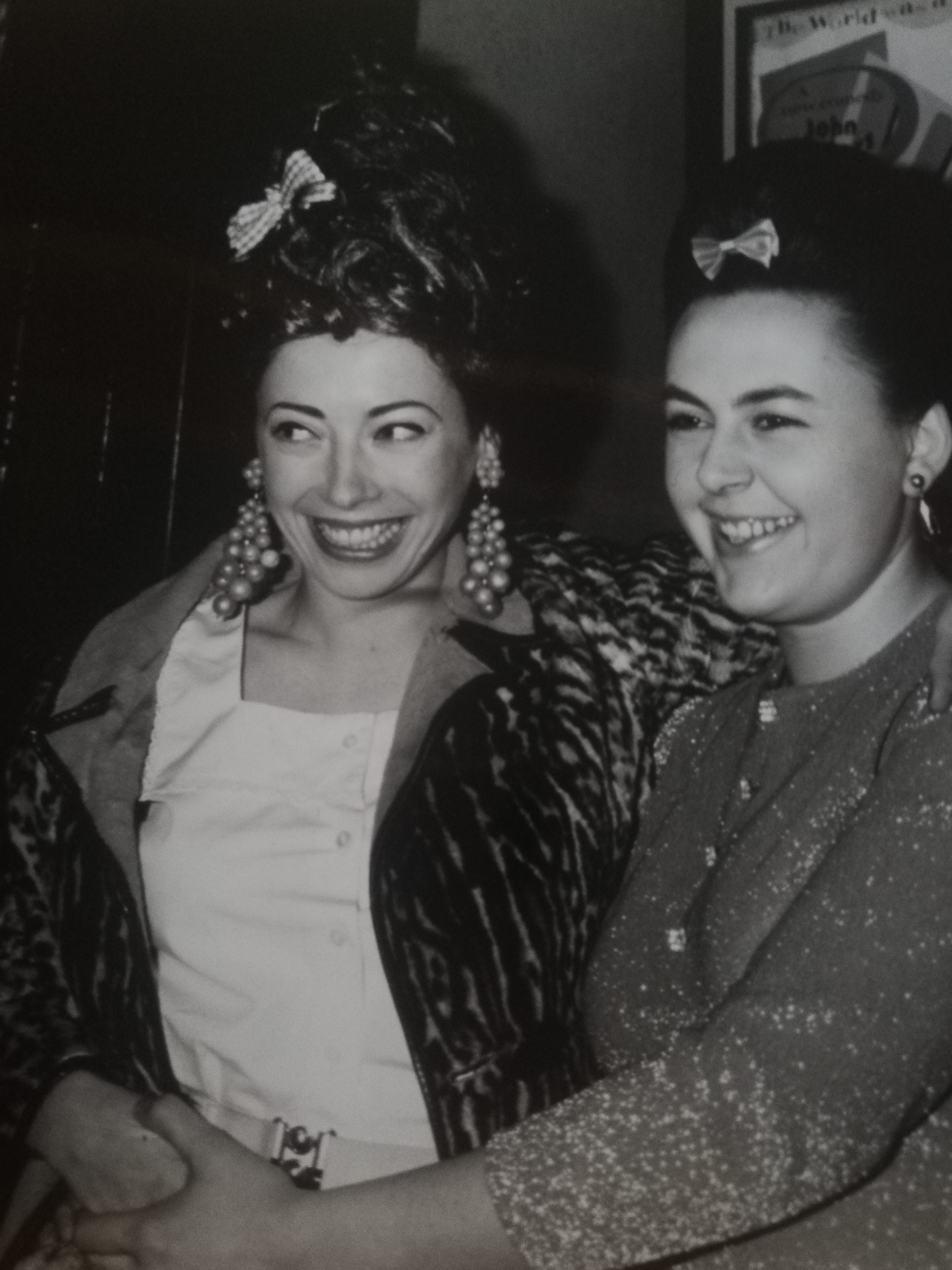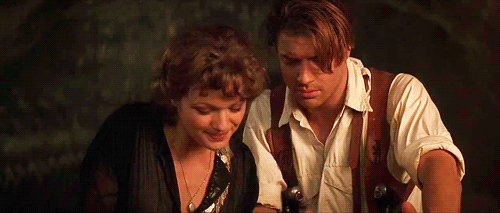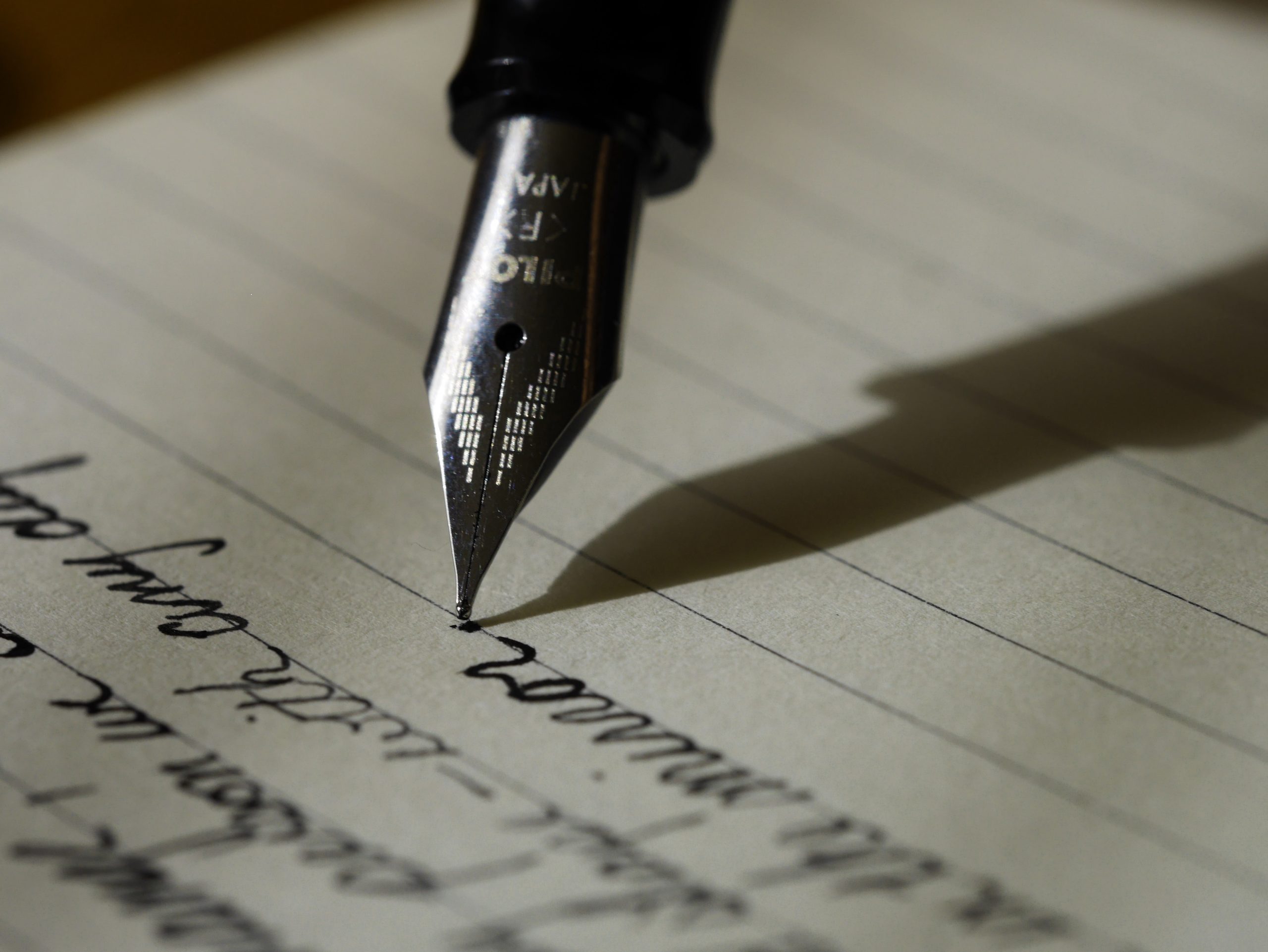Selling My Story - Roz
They do say everyone’s got a book in them, but we all know that maybe some of those stories are better kept there. I certainly learnt my lesson the hard way – having been an indie Film PR in the 80’s & 90’s, I was so sure that people (other than my friends and relatives) would find my authentic female, gossipy recollections fairly amusing and some shocking, full of big names, but also culturally insightful from a pre-social-media, pre-#MeToo aspect. Having put together all my best stories, it certainly needed some professional help (I have no delusions that I’m a good writer, just someone with an excellent memory!), so a good friend, an experienced film critic and journalist, helped me by ghost-writing and re-arranging everything in a more cohesive and linear fashion.
I was so naively confident that this finished book project, now entitled; GIRL ON FILM with the sub-title CONFESSIONS OF AN 80’S FILM PR, would be a relatively easy sell – boy, I couldn’t have been more wrong…
I carefully selected all my favourite publishers who include film biographies with their non-fiction titles. I wrote a tight one-page pitch with the target market in mind and enclosed two b/w photos of me at premieres, HAIRSPRAY & NIGHT OF THE LIVING DEAD, to give the project a flavour and to show that I was a real person, involved right at the heart of the film industry of that time. I started sending out with the first three chapters to my targeted list. I received some fantastic responses – everyone seemed to like it, but just not enough.
I’d like to think that I came pretty close at least twice to having a deal. Although I’m certainly not famous (nor would ever wish that upon anyone), my brushes with celebrity were many, so if stories about Sean Connery, Tilda Swinton, Denzel Washington, Debbie Harry, Tim Roth, Monica Bellucci, Jude Law and directors Quentin Tarantino, John Waters, Sam Raimi, Kathryn Bigelow, Ken Russell, Derek Jarman, weren’t enough to whet your appetite, what can I say? Plus an awkward afternoon with Harvey Weinstein, which certainly wasn’t for the faint-hearted. The second publisher initially appeared super-keen but made me wait for months before suddenly changing their mind.
As a Film Publicist I was well-known and respected for only selling projects that I believed in: with a film, there’s no hiding a ‘turkey’. My ability to sell something I believe in has only helped me in life, so my new current career as an agent for screenwriters means all my hand-picked clients trust me to sell their work in the best possible way. Plus my former media relationships I had with film critics and features editors has now morphed into a different side of the media in the shape of producers and development executives.
This experience has certainly been a steep learning curve and taught me how to swallow some unsavoury slices of humble pie. My patience has also been tempered as I’ve come to realise that you can never hurry anyone to make an important decision. My general policy of always responding, quickly to anyone whether it was about a certain script that they’d sent or even a job still means a lot to me. Also being able to take critical criticism ‘on the chin’, is another important life lesson and not feeling that someone is making it personal.
Roz
Header photo by Tuva Mathilde Løland on Unsplash

Roz and Lucy at the Hairspray premiere, 1988
From Page to Screen
Some of you may have noticed the shared origins of two outstanding new epic films both come from books – Jane Campion’s The Power of the Dog is based on a 1967 novel by Thomas Savage and Ryusuke Hamaguchi’s Drive My Car originally came from a modern Haruki Murakami short story.
Film and tv media regularly plunder literature for source material, especially best-sellers, therefore reducing the risk of small audiences. After all, two of the biggest film franchise series to date come from best-selling publishing phenomenons though rather different eras and styles are Ian Fleming’s Bond films and J.K. Rowling’s Harry Potter series. Even excluding Austin, Dickens, Shakespeare, Greek and vampire mythology, literally hundreds of adaptations, whether traditional, contemporary or futuristic add to this large pantheon of screen entertainment.
However, that road from page to screen is never an easy one. Occasionally, a near perfect cinematic or tv realisation of a book will appear, like the aforementioned – some of my favourite examples include:
- The Talented Mr Ripley,
- The Great Gatsby,
- The Tin Drum,
- The English Patient,
- Doctor Zhivago,
- The Age of Innocence,
- The Prime of Miss Jean Brodie,
- The Shining, Misery & Carrie,
- Room,
- We Need to Talk about Kevin,
- Highrise,
- A Clockwork Orange,
- The Queen’s Gambit,
- Master & Commander,
- Bridget Jones’ Diary, and
- Normal People.
Interestingly, two of cinema’s most popular and enduring film classics are based on rather weaker books, The Godfather and Jaws, thus proving that it’s not necessary the literary credentials but an original premise that counts but the creative input that re-interprets it.
Then we come to the tricky category that most people would rather forget, and this is the problematic film interpretation, often regardless of the original material’s quality. Alex Garland’s novel The Beach, Dan Brown’s The Da Vinci Code, Joanne Harris’ Chocolat, Audrey Niffenegger’s The Time-Traveller’s Wife, and many more go to show that, no matter how beloved the source material, the films are arguably not of the same quality.
The Tank Girl feature film based on the cult comic book of the same name was such a flop that the UK premiere hid the film and just had a party and perhaps the less said about the more recent Cats adaptation… the better.

- Roz Kidd
Photo by Jeremy Yap on Unsplash
A Big Splash: comedy writers Mitchell & Nixon join Ki Agency
We're proud to announce a new signing with top British comedy writers BRIAN MITCHELL and JOSEPH NIXON. The hit West End play, The Shark is Broken, explores the troubled behind-the-scenes working relationships of the Jaws cast. The play was co-written by Nixon and Ian Shaw, son of Robert Shaw, (who starred in he iconic 70s Spielberg film), and is currently playing at The Ambassadors Theatre.

With numerous TV comedy credits to their name, Mitchell & Nixon have also penned many other comedy plays, including Big Daddy vs Giant Haystacks and Those Magnificent Men. They are currently working on a number of exciting new projects.
Follow them on Twitter here!
Photo credit - Louise Clarkson
Header image photo by Gerald Schömbs on Unsplash
Halloween Film Recommendations
We here at Ki love a good horror movie! Here's what we'll be watching this weekend...
Meg
PAPERHOUSE (1988) - One of my all-time favourite movies, because it's got the psychological depth as well as genuinely scary stuff. First love, first experience of death, and reconciling with dad.
INHERITANCE (2020) - Although the 'monster' is a bit lame when you think about it, this is a horribly scary movie that I had to watch through my fingers. Several times.
The ADDAMS FAMILY (Raul Julia/Angelica Huston) movies (1991, 1993) - What I wish my family were like. I know these by heart.
HEATHERS (1988) - Just like my high school. I still shudder when I think back...
THE SOUND OF MUSIC (1965) - Al l those children singing - and they're blond. No chainsaws? Get me out of here!
Anne
I hate having to limit myself to only five! But here we go:
TREMORS (1989) - I love a horror/comedy, and Tremors is right up there with the best of them. The monsters are fantastic, the banter is excellent, and the film is endlessly quotable. Which is why I've been quoting it for... decades.
READY OR NOT (2019) - Despite having a title I simply cannot ever remember, Ready or Not is one of my favourite new horror/comedies: there's a creepy house, a creepy family, a totally memorable premise and an awesome heroine who wears sensible shoes throughout the entire movie (despite also wearing a wedding dress).
THE THING (1982) - My parents were pretty liberal with what I could and couldn't watch while I was growing up, so I definitely saw The Thing too young. But holy cow, what a movie. The absolutely visceral horror of it all (those creature effects!), plus the isolated and terrifying otherness of the arctic landscape, and the nihilistic ending... and, of course, a lead character who spends the entire film basically yelling "WTF!?!" at the top of his lungs, as any reasonable person would do. It all adds up to a truly powerful film.
HORROR EXPRESS (1972) - It's The Thing (Well, correctly The Thing from Another World) set on a train, starring Christopher Lee, Peter Cushing and Telly Savalas. Do I need to say any more? Yes? Well, Horror Express is a schlocky delight and includes a scene where they analyse a drop of blood from the monster's eye and see... what the monster last saw. Which was a dinosaur. YES.
THE X-FILES: "HOME" (1996) - Maybe it's cheating to include an episode of a tv show on this list, but I can't help myself. The first episode I ever saw was of The X-Files was "Darkness Falls" (aka the man-eating green bugs episode), and I was hooked. But nothing could have prepared me for the brutal horror of "Home". So violent and disturbing is the episode that it wasn't reaired for years, meaning that if you missed seeing it the night it originally aired, back in 1996, that was it (until the DVDs were released, anyway).
***
Roz
My top five favourite horror films that I can (aapart from TCM) easily watch repeatedly and never tire of their brilliance to keep shocking me:
POSSESSION (1981) - early 80s cult classic emotional roller-coaster horror thriller about one woman's bizarre relationship with her even stranger secret lover... Starring a very young Isabelle Adjani and Sam Neil and directed by Andrzej Zulawski. Adjani's meltdown with her shopping in a tunnel is a corker.
CARRIE (1976) - Sissy Spacek on top form as a tormented schoolgirl with a crazy mother and evil class "mates" - it's not surprising how much of an impression this film made on me as I saw it (Glasgow Odeon) as a 15-year-old girl!
THE TEXAS CHAINSAW MASSACRE (1974) - This horror classic freaked me out so much upon first viewing (1981, late-night and alone!) in Fulham's Paris Pullman cinema that to this day I cannot bear to see old Leatherface and his crazy shenanigans. Even more terrifying to learn that this film was based on a real person/family.
THE EVIL DEAD (1981) - Yes, another horror classic - wildly exciting and equally scary. I was honoured as a young film publicist in 1987 to promote the fantastic sequel, EVIL DEAD 2, in the UK, with the. ever-charing director Sam Raimi and his star, Bruce Campbell.
PSYCHO (1960) - Another horror classic from the master himself, Alfred Hitchcock - I love the audacity of killing off your leading lady in the first half hour! No wonder audiences were so traumatised - even now it looks magnificent, and even scarier than ever.
Photo by freestocks on Unsplash
When we wish upon a star...
You may have noticed that we've added a new category to the website - we now have a separate page devoted to telling you a bit more about the three of us, and what we're looking for these days. But... why? There are a million agents out there, and if you find us while you're looking for an agent, and you like the sound of us, then you'll probably query us, right? (That's what we hope, anyway!)
That's definitely true. But the thing is, we love having a personally tailored submission. Say, for example, that you've written an awesome action-romance that can be compared to Romancing the Stone. But, in your submissions to agents, perhaps you haven't mentioned that fact - maybe because the film is 35 years old, and someone told you that when you query, you should make comparisons to recent successes. That's certainly advice I've given over the years.
In my wishlist, however, I specifically mention that I'm looking for action-romances like Romancing the Stone. So if you mention that in your query, it'll get me really excited. And an excited agent is a good thing... (I also love The Mummy, fyi.)
Good luck!

-Anne
Featured image photo by Pawel Czerwinski on Unsplash
What's the big deal about budgets?
So, what’s the big deal about budgets, I hear you say. Well, it could simply mean the difference between your script getting made or not, that’s all… When I remind new screenwriters of the importance of trying to keep their stories set in the PRESENT DAY or NEAR FUTURE, I can hear them sighing. However, as a new screenwriter, if you insist on staying in the Victoria era or 1960’s and set your story in Outer Mongolia, as fascinating as this place is, no UK producer will care and simply use this as a reason to turn down. The high amount of recent submissions, even from film graduates that don’t even state WHERE their story is set, let alone WHAT year, is staggering. Please set the tone!
Horror and Sci-fi genres (and some modern-day dramas) can easily come under budget if they’re careful about using a minimal cast, few SFX, no star-names and a location in the middle of nowhere. Some of my favourite films, like REAR WINDOW, ROOM or SAW were obviously set in one place producing a genuinely claustrophobic atmosphere. The astounding 2015 US film, TANGERINE’s miniscule budget was only $100,000 as it was shot on an iPhone! Feature film budgets vary wildly and because of the current ‘streaming wars’, new TV series are enjoying the bigger budgets from the film world. I was shocked to learn that some episodes of Netflix’s show, THE CROWN cost as much as £20 million per hour and not just because of the starry cast but also the supremely high standards of costume, hair/make-up, room décor, cars, etc., being 100% authentic. I was impressed by the fact that MADMEN's costume designer, Janie Bryant used genuine 1950’s/60’s/70’s vintage outfits that were then tailored for each actor.
When you contrast THE CROWN’s high budgets to a ‘normal’ hourly rate of TV being a paltry £500,000 to £1 million, you can see how challenging it is for UK TV companies to compete in this ultra-competitive world, which is why we’re seeing an increase in international co-productions. Although the impressively ‘deep pockets’ of Netflix, Amazon, Apple, etc., have created a ‘gold-rush’ in terms of UK & US production, it also means that the powers that be will rarely take a risk on an unknown writer, preferring instead to base a series on a best-selling novels (OUTLANDER, HIS DARK MAERIALS, NORMAL PEOPLE), regardless of genre as the audience is already ‘out there’ or on a popular graphic novel (UMBRELLA ACADEMY, END OF THE F***ING WORLD) and numerous prequels, sequels, spin-offs and revivals (SEX & THE CITY & FRASIER).
So, my challenge to new screenwriters is this: please set your exciting, fresh and original story in present day UK and send it to us – simple! We’re open to all genres. Every writer has to start somewhere – look at the career trajectory of your favourite writers and you’ll see that they’ve had to work hard to get that episode of future writing on top series like SUCCESSION or KILLING EVE. And then, one day in the not too distant future, you could be writing your own original TV series. It’s not impossible to achieve this but it does require focus, tenacity, a thick skin (to cope with criticism), good luck, good timing and of course, a good agent to push your work into the right producer’s hands.
Roz
Concentrate your creativity
Editorial input
Since seeing The Wife last year, I’ve been mulling over the blurry edges of authorship. The Glenn Close character rewrites her husband’s first novel, which is published in his name, and ends up watching him collect a Nobel Prize for ‘his’ impressive contribution to literature.
This extreme situation made me start thinking about the (much smaller) editorial contributions which I and my colleagues make. We don’t discuss it much. Most of us feel that any editorial input to a book or screenplay is the rightful property of the writer.
Agents, publishers, script editors, and producers often discuss work in progress with the writer, and contribute ideas and comments to a greater or lesser extent. Sometimes we offer thoughts that are adopted by the writer, and the resulting work is changed significantly.
I was interested to read this legal report this morning: https://www.harbottle.com/martin-v-kogan/
There are some conclusions to draw from this. First, if a writer accepts a large contribution from a friend, family member, etc, they should discuss this with them and make it right with them, to avoid a future claim.
Second, it’s a good idea to get comments from a small number of people, rather than just one or two. I believe that professionals will continue to be happy to nurture work in progress without claiming ownership of any contributions. Certainly there is no copyright in ideas, and if an agent, publisher or producer did decide to challenge a writer for their earnings, there would normally be only a flimsy basis. We can continue the glorious, fascinating process of discussing developing new projects, but it’s worth bearing this issue in mind.
-Meg
Photo by Glenn Carstens-Peters on Unsplash
The Importance of Authenticity and the Dangers of Script Competitions
Authenticity is a vital part of any artist’s identity and burgeoning style, whether you’re a painter, a singer/songwriter or a screenwriter. As you can imagine we’re inundated with scripts of all types, here at The KI AGENCY and the sheer variety is staggering in terms of quality and subject matter. While we pride ourselves in being able to respond to everybody, one of the most challenging issues is a screenwriter whose work is impressive but has chosen to set their story in an American High School or by a Lake in Vermont, but they’re NOT from there. We totally understand and respect any new writer with Hollywood aspirations but without developing an individual style, you’re just another formulaic writer, akin to a computerised version of a screenwriter.
Everyone from, top studio executives to brand new indie producers, are searching for that certain something that makes a script feel special and ORIGINAL. It doesn’t matter what your background is – some of the UK’s most impressive screenwriters; from Martin McDonagh, Alex Garland, Russel T Davis, Irvine Welsh, Abi Morgan, Sacha Baron Cohen, Lyn Ramsay, Armando Iannucci, Chris Morris, Jack Thorne, etc. – all share a genuine honesty about their stories, so an audience will also “buy” into their words and share their heart-felt convictions, sense of humour and unique take on life.
Which brings me onto the second half of this new blog – SCRIPT COMPETITIONS – just like Film Festivals, of which there are currently more than 365 per year, there are also hundreds of script competitions too. However, which ones are worthwhile entering? Be careful out there – please don’t become a professional “Competition Junkie” and spend all your hard-earned cash. Try to be choosier about which competitions you enter. After much research, I’ve concluded that the safest bet it to apply to genuine FILM FESTIVALS, world-wide who usually all run these types of competitions and or ones attached to legitimate organisations like, BAFTA, BFI, SCREEN SCOTLAND, CREATIVE ENGLAND, etc. As one would expect, the ACADEMY NICHOLL FELLOWSHIP, which is part of the Oscars organisation and the EMMYS run their own prestigious screenplay contests which offer cash prizes but competition is fierce! The Academy competition is only for new feature films and 1st prize is $35,000, whereas the Emmys invite TV scripts only and their 1st prize is a mere $2,500.
Of the many other competitions, the majority being in America, most will charge approximately $50 as an entry fee. Both SHORE SCRIPTS and SCRIPTAPALOOZA have some of the better quality industry judges. SCRIPT LAB, in conjunction to the New York Film Academy is another respected competition, sponsored by FINAL DRAFT (who also have their own separate competition called BIG BREAK). The US film industry’s number one Horror screenplay contest is SCREENCRAFT, whereas, here in the UK, we have the infamous FRIGHTFEST who have also started to run their own script competition. There’s a special screenplay competition for Women over 40, funded by Meryl Streep and run by the New York Women In Film organisation. Whichever competition you decide to enter, please don’t do more than one at a time, be authentic and Good Luck!
Roz
Photo by Randy Fath on Unsplash
How to Get (and Not Get) an Agent
HOW NOT TO GET AN AGENT
Firstly, I’ll start with how NOT to get an agent as some of the examples are so awful, that you’d have thought I’d made them up, however, they’re all based on actual incidents, here at The Ki Agency;
1/ Do NOT harass anyone ever, this includes constantly e-mailing, texting or phoning agents to ask them what they thought of their work and when will they be taken on, etc. I would also apply this rule to real life too, so please NEVER harass an agent, manager, director or actor in a public place, lift, bar, etc. to thrust your script upon them, they will hate/pity you and are unlikely to ever read it.
2/ Equally unimpressive is to demand a meeting and/or that we respond immediately…..
3/ Don’t even THINK about re-sending a declined script or book 6 months later, to another agent – we have a database with all our responses to submissions - there is no secret “back door” short cut.
4/ NEVER verbally reprimand someone by shouting on the phone, demanding they read your script – this will never win you an agent, regardless of talent as you are demonstrating what behaviour you think is normal/acceptable. As with any relationship; it’s a two-way street.
5/ Do NOT lie in your cv, this includes claiming to have made Oscar winning or nominated screenplays or films..……do not claim that your work has been shown at various Film Festivals world-wide. Remember how easy it is via the Internet to double check facts and look on imdb.
6/ Don’t send us 10 pages or ask if we want to read the remaining or describe a project, simply send the complete script, BE BRAVE!
7/ Even though you’ve been to lots of different writing courses, it’s probably better to only mention one or two as you just end up looking desperate, addicted or too odd.
8/ Do not list your script or film as winning tons of imaginary prizes, by which I mean paid for screenwriting courses, as this doesn’t count or even film/script competitions that don’t exist!
9/ Do NOT “Hide in History” as I read so many WW1 or Victorian dramas, which are decently written but unlikely to ever be made by a first-timer. A new writer’s work stands a far better chance to be made if it’s modern. Did you know that one hour of contemporary drama costs approximately £750,000 but set in any different period and budgets shoot up to around £3 to £6 million?
10/ On the off-chance that your script is turned down, DO NOT send more projects in – this is know in the business as the “boomerang” response and NOT what anyone wants. Listen to what the agent has said – often there could be really helpful advice about your imperfect script.
11/ Try to resist describing your script as the new BREAKING BAD meets STRANGER THINGS, for example because as brilliant as both these series are; you’re making your project derivative and NOT ORIGINAL – you need to make your project sound as unique and special as possible.
Here are some handy tips in HOW TO WIN THE ATTENTION OF AN AGENT
1/ Write a brilliant, breath-takingly original screenplay, regardless of style, length or genre. Generally speaking, I prefer to read contemporary stories set in the UK or with a British context or protagonist.
2/ Write a sanely worded, well spelt, grammatically correct e-mail, communicating basic facts, contact details and/or creative flourish or links to other work, etc. Be careful with your wording; ie; do not call me Sir (my name is Roz) Be honest about your ambitions and expectations, reference why you’re looking to be represented by this agent, be it some other writer you respect or mutual taste.
3/ Wait – be patient for at least a couple of months or so. Remember that Patience is a Virtue.
4/ Hopefully you WILL find the right agent one day soon, but in the meantime, should an agent say NO, for now, but asks you to stay in touch, for whatever reason, take this advice on the chin – they wouldn’t say this if they didn’t mean it and contact them in 6 months or a year’s time or whenever you have finished a new script or book.
5/ Create an appropriate website which shows off your true talents – you can use photos of yourself and or the projects that you’ve produced. Links to film clips, trailers, etc. are always helpful too. Keep it tight, use some professional quotes, but not too many. Keep away from your private social media details. Have a clear cv somewhere and contact details.
6/ Finally, do remember to KEEP ON WRITING – whatever happens – if you are good, someone, somewhere at some point in your life will recognise this. If you’re creatively stuck, try writing something completely different or in a genre that you’d never liked or contemplated, you could surprise yourself and us!
Good luck and have faith in yourself.
Roz
Photo by Charles Deluvio on Unsplash







